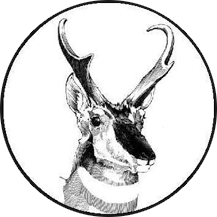About the Committee
Co-Chairs
- Karen E. Munroe (kmunroe@bw.edu)
- Dana Green (dana.green.eco@gmail.com)
Members
|
|
|
History and Mission
The Committee on Education and Graduate Students was established in 1978, with the purpose of assisting students of mammalogy in making informed choices of career, improving their scientific expertise, and helping them find funding for research and employment in the discipline (Gill and Wozencraft, 1994). To those ends, the committee prepares and distributes brochures, holds workshops, provides evaluations of student presentations at the Annual Meeting, and conducts various mentoring activities.
Responsibilities
The Chair communicates with committee members to outline programs, ask for participation in existing programs, and solicit development of new programs.
Files
Activities
Programs
Student Evaluations
This program provides evaluations of platform presentations and posters by students at the annual meeting. The goal is to provide constructive comments to students from fellow mammalogists on the content, structure, and delivery of professional presentations. One Committee member usually handles the assignment of evaluators to student papers (Steps 1-5) and another Committee member usually handles the tabulation of scores and sends out the completed evaluations (Steps 6-7).
- Update flyer to go into registration packet. Send to local committee Chair by 1 November to be included in Final Call for Papers.
- Get program and abstracts of students wanting evaluations (April/May) from local committee Chair.
- Assign evaluations to each student paper (preferably 3).
- Distribute schedules, evaluation sheets, and instructions to evaluators; distribute schedules at least a few days before meeting; reschedule based on conflicts.
- Set up box at ASM desk for evaluators to return their evaluation sheets.
- Tabulate and distribute evaluations to students.
- Send names of evaluators and students with a score of 9 or better to ASM for publication in the Journal of Mammalogy.
Breakfast with a Scientist
This program provides an opportunity for students to meet well-established mammalogists from several disciplines in an informal setting. Coordination is handled by 1-2 Committee members, i.e., sub-committee Chairs
- Committee Chair appoints nomination sub-committee
- Sub-committee nominates established scientists in the areas of Behavior, Community Ecology, Conservation, Evolution, Morphology, Natural History, Physiology, Population Ecology, Systematics, and Zoogeography.
- 1-3 people are selected in each area by Sub-committee Chairs.
- Sub-committee Chair(s) write letters to nominees asking them to participate
- Sub-committee Chair(s) write letter to nominees thanking them for agreeing to participate
- Prepare flyer for registration packet (Nov-Dec)
- Work with Local Program Chair to set up tables in Dining Hall for each morning session.
- Assign committee members to sit at registration desk for student sign-ups
- Letter thanking scientists for participation
Luncheon for Student Award Recipients, Plenary Speakers, and President
This program provides an opportunity for Student Award Recipients to meet with the leaders of the Society in an informal setting.
- Ask local committee Chair to select a restaurant with local flavor/charm.
- Get names and addresses of award recipients as soon as possible
- Send these names to President who will host the luncheon.
- Send a follow-up invitation to participants about 1 week prior to meeting.
- Arrange for transportation to lunch.
- Local Committee pays for lunch out of registration fees.
- Meet with all luncheon participants at the beginning of the meetings and make sure they are aware of lunch plans.
Mentoring Program
This program provides a means for identifying established members of the Society who are willing to provide information on the Society to attendees who are not members or who are young members not yet familiar with the activities and benefits of the Society.
Information Brochures
- Distributed by Committee Members
- Careers in Mammalogy (also available on the web)
- The Science of Mammalogy (also available on the web)
- The American Society of Mammalogists
Grant List
- Mail distributions by Committee Member (very few mail requests now)
- Web page access
- Provide URL's for grant home pages
Special Programs
Periodic Workshops at Annual Meeting (e.g., 1998 Workshop on Career Opportunities in Mammalogy).
